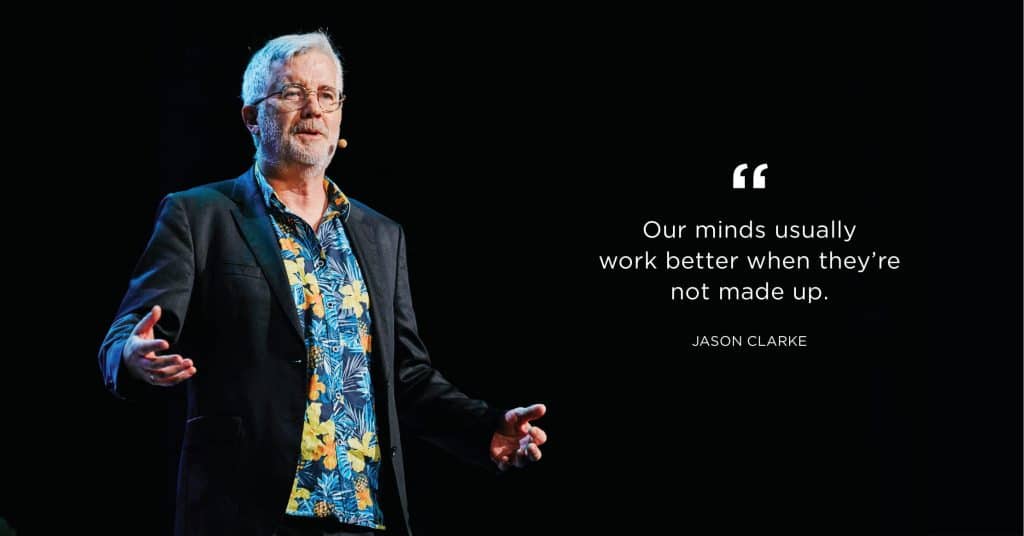Exploring the possibilities of What’s Next? | Jason Clarke | Resilience

Business resilience in the time of COVID-19.
At ICMI we are fortunate to have Australia’s best business thinkers in our stable. Our speakers are experts in change management, dealing with disruption and guiding businesses through uncharted waters. COVID presents several challenges in both protecting our staff’s health today, and protecting their income tomorrow as business realities set in. With this in mind, we’ve asked our speakers to share their insights on how businesses can ride the shockwave and minimise the impact.
About the Author:
One of the most sought-after creative minds in the country, Jason Clarke takes an optimistic approach to business resilience to explore bold new ways of thinking and working.
Here’s what he had to say:
How to Master your Disaster
Ever notice some people are better at change than others? Whatever life throws at them, they work it to their advantage.
How do they do that?
Maybe they tune out the empty speculation that comes in times of uncertainty; when no-one knows what’s going on, we like to make stuff up, none of which will be helpful, accurate or positive, so avoiding idle opinion is just good mental hygiene.
Maybe they gain perspective by focusing on what’s not changing. Our larger purpose and daily realities tend to stay the same; all that really changes are the possibilities of new ways of thinking and working.
Maybe they scenario plan to prepare for all possible futures… or they’ve chosen not to worry about what they can’t control to give 100% to what they can. Maybe they recall all the chaos and turmoil they’ve overcome in their lives already and have learned to back themselves no matter what happens.
These are good strategies and I’ve used all of them at one stage or another. But my favourite is something much simpler, something I see every time a small child falls over.
Picture a little kid running through a park, suddenly stumbling over their own feet then landing in a heap. For a few precious seconds they don’t laugh, they don’t cry, they just look… surprised. This isn’t what they had planned so they don’t know how to feel about it. Yet.
Is it good? Is it bad? Or just new?
The moment doesn’t last long; the kid will choose to laugh, cry or panic as soon as its parents do. As adults we dispense with that moment altogether and pass judgement within nanoseconds: everything is either good or bad.
But in that glorious instant of ‘I don’t know what to think’ lies the secret of the great inventors, innovators and entrepreneurs – instead of judging what they weren’t expecting, they explore its possibilities.
That’s how we got penicillin, x-rays and photography. And dynamite, Teflon and radium. And radio astronomy, vaccines, artificial hearts (and pacemakers), rubber bands, microwaves, shatterproof glass, vulcanised rubber, Scotchguard, sticky notes, blue jeans, margarine, sandpaper, choc-chip cookies, raisins, champagne, dry cleaning, cheese… and America. Pasteur said ‘Discovery is an accident meeting an open mind’ and he should know.
Minds usually work better when they’re not made up.
That’s the real secret of the Quick-Change Artist; instead of grieving for the loss of What Was, or freaking out about What Is, they explore the possibilities of What’s Next.
This article is part of our blog series on business resilience.
Learn more about Jason